
The Kreisau Circle (1940–1944) was a group of about twenty-five German dissidents in Nazi Germany led by Helmuth James von Moltke, who met at his estate in the rural town of Kreisau, Silesia. The circle was composed of men and a few women from a variety of backgrounds, including those of noble descent, devout Protestants and Catholics, professionals, socialists and conservatives. Despite their differences, the members of the Kreisau Circle found common interest in their opposition to Hitler's regime on moral and religious grounds. At their meetings, the circle discussed how they would reorganize the German government after the end of the Third Reich.

Helmuth Karl Bernhard Graf von Moltke was a Prussian field marshal. The chief of staff of the Prussian Army for thirty years, he is regarded as the creator of a new, more modern method of directing armies in the field. He commanded troops in Europe and the Middle East, in the Second Schleswig War, Austro-Prussian War and Franco-Prussian War. He is described as embodying "Prussian military organization and tactical genius". He was fascinated with railways and pioneered their military use. He is often referred to as Moltke the Elder to distinguish him from his nephew Helmuth von Moltke the Younger, who commanded the German Army at the outbreak of the First World War.

Graf Helmuth Johannes Ludwig von Moltke, also known as Moltke the Younger, was a German general and Chief of the Great German General Staff. He was also the nephew of GeneralfeldmarschallGraf Helmuth Karl Bernhard von Moltke, who is commonly called "Moltke the Elder" to differentiate the two.
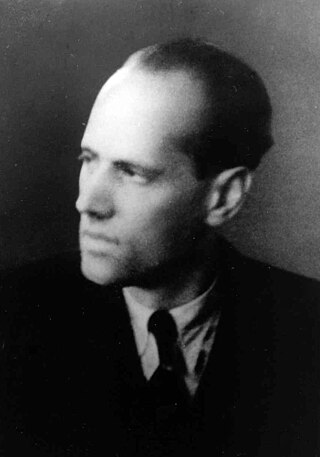
Helmuth James Graf von Moltke was a German jurist who, as a draftee in the German Abwehr, acted to subvert German human-rights abuses of people in territories occupied by Germany during World War II. He was a founding member of the Kreisau Circle opposition group, whose members opposed the government of Adolf Hitler in Nazi Germany, and discussed prospects for a Germany based on moral and democratic principles after Hitler. The Nazis executed him for treason for his participation in these discussions.
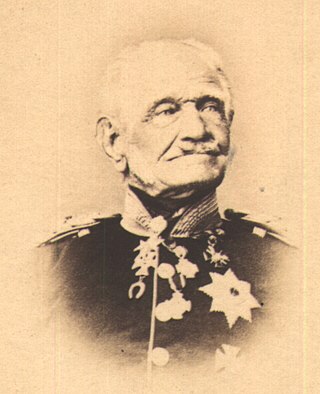
Friedrich Heinrich Ernst Graf von Wrangel was a Generalfeldmarschall of the Prussian Army.
Moltke is a noble family resident in Germany and Scandinavia.

Adam Wilhelm Moltke, 3rd Count of Bregentved was a Danish nobleman, landowner, civil servant and politician, who in 1848-1852 was the first Prime Minister of Denmark under the new constitutional monarchy outlined in 1848 and signed as the Danish Constitution on 5 June 1849 by Frederick VII of Denmark.

Count Adam Gottlob von Moltke was a German-born Danish courtier, statesman and diplomat, and Favourite of Frederick V of Denmark. Moltke was born at Riesenhof in Mecklenburg. His son, Joachim Godske Moltke, and his grandson, Adam Wilhelm Moltke, later served as Prime Minister of Denmark.

Ulrich-Wilhelm Graf von Schwerin von Schwanenfeld was a German landowner, officer, and resistance fighter against the Nazi régime. His name is commonly shortened to Schwerin.

Heinrich Burggraf und Graf zu Dohna-Schlobitten was a German major general and resistance fighter in the 20 July Plot to assassinate Adolf Hitler at the Wolf's Lair in East Prussia. He was a Knight of Justice of the Order of St John, which was regarded with disfavour by the Nazis.
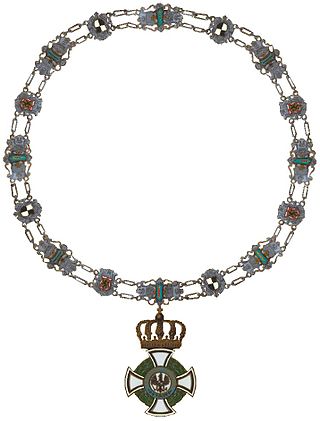
The House Order of Hohenzollern was a dynastic order of knighthood of the House of Hohenzollern awarded to military commissioned officers and civilians of comparable status. Associated with the various versions of the order were crosses and medals which could be awarded to lower-ranking soldiers and civilians.

The House and Merit Order of Duke Peter Frederick Louis or proper German Oldenburg House and Merit Order of Duke Peter Frederick Louis was a civil and military order of the Grand Duchy of Oldenburg, a member state of the German Empire. The order was founded by Grand Duke Augustus of Oldenburg on 27 November 1838, to honor his father, Peter Frederick Louis of Oldenburg. It became obsolete in 1918 after the abdication of the last grand duke.

The House of Finck von Finckenstein is a noble family classified as Uradel. It is one of the oldest Prussian aristocratic families extant, dating back to the 12th century in the Duchy of Carinthia.

The House Order of Albert the Bear was founded in 1836 as a joint House Order by three dukes of Anhalt from separate branches of the family: Henry, Duke of Anhalt-Köthen, Leopold IV, Duke of Anhalt-Dessau, and Alexander Karl, Duke of Anhalt-Bernburg.

Joachim Godske von Moltke was the Prime Minister of Denmark from 1814 to 1818. He was also father of Prime Minister Adam Wilhelm Moltke and the son of Danish diplomat Adam Gottlob Moltke.
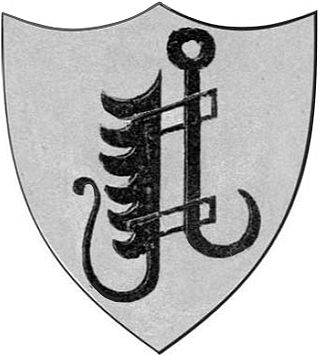
The House von der Decken is the name of an old Hanoverian family of German nobility. Since more than 750 years the center of the family is in a part of Lower Saxony at the south bank of the river Elbe called Kehdingen.
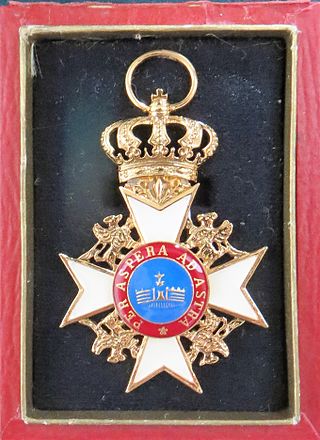
The House Order of the Wendish Crown was an Order of the House of Mecklenburg, jointly instituted on 12 May 1864 by Grand Duke Friedrich Franz II of Mecklenburg-Schwerin and Grand Duke Friedrich Wilhelm of Mecklenburg-Strelitz.

Hobe is the name of an old German noble family from Mecklenburg, which also became influential in Denmark. Branches of the family are still in existence today.
Hans Schack, Count of Schackenborg was a Danish nobleman and enfeoffed count. He was the fourth holder of the County of Schackenborg from 1741 to 1796.
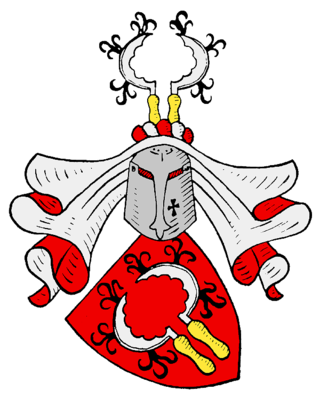
(von) Lüttichau is a Danish and German noble family that belongs to the High Nobility. The family has several separate noble branches, primarily from Denmark. Males of the family carry the title Baron or Count.



















